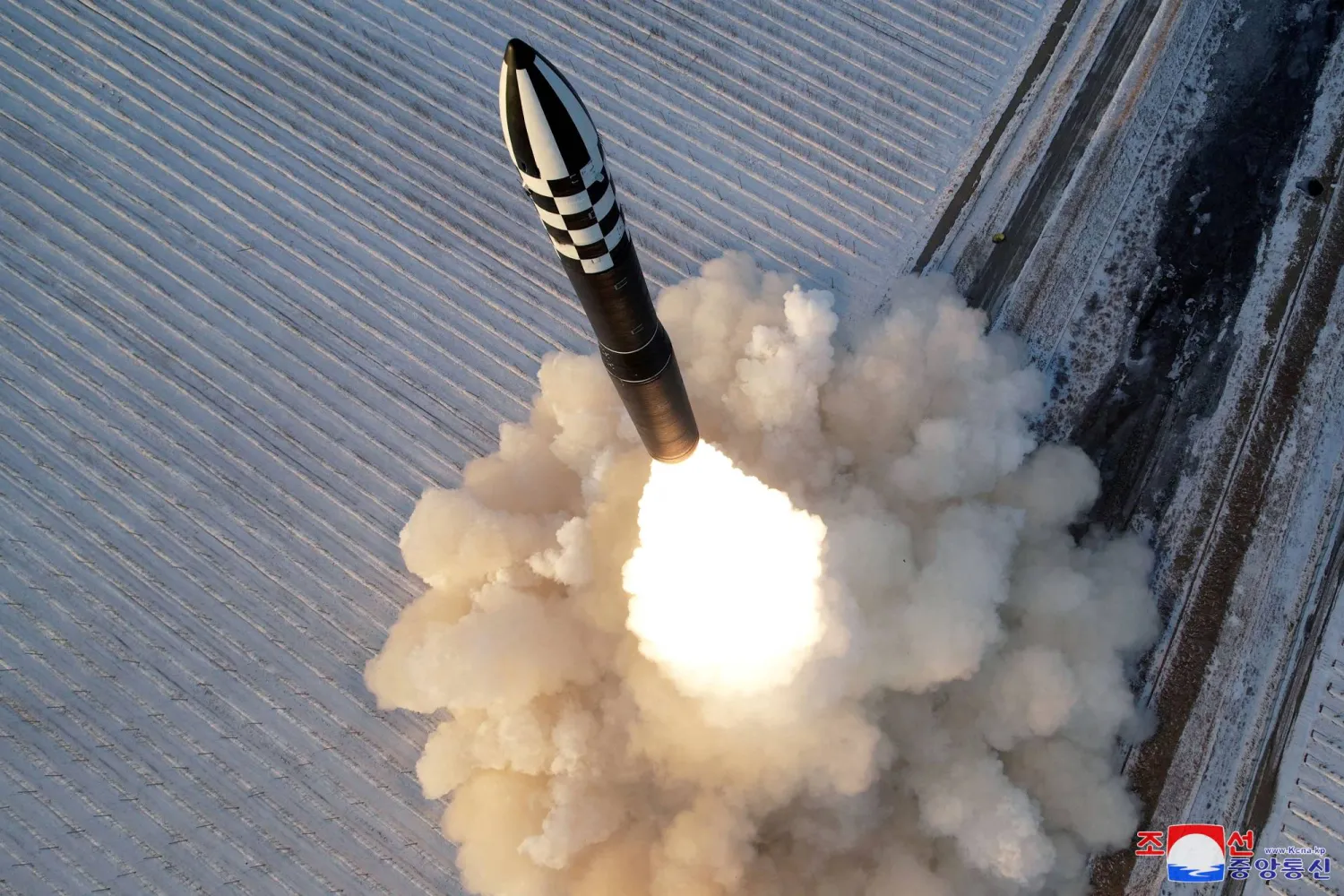North Korea said it tested an intercontinental ballistic missile on Thursday, upgrading what it called the "world's most powerful strategic weapon,” as Seoul warned Pyongyang could get missile technology from Russia for helping with the war in Ukraine.
North Korean leader Kim Jong Un was on hand and said the test was a warning to enemies that have been threatening the country's security, KCNA state news agency said.
"The test-fire is an appropriate military action that fully meets the purpose of informing the rivals, who have intentionally escalated the regional situation and posed a threat to the security of our Republic recently, of our counteraction will," Kim was quoted as saying by KCNA.
The muscle-flexing comes amid a storm of international condemnation and rising alarm over what the U.S. and others say is North Korea's deployment of 11,000 troops to Russia - 3,000 of them close to the western frontlines with Ukraine.
The launch drew swift condemnation from South Korea, Japan and the United States.
A day earlier, Seoul reported signs the North may test-launch an ICBM or conduct a seventh nuclear test around the US presidential election on Tuesday, seeking to draw attention to its growing military prowess.
Shin Seung-ki, head of research on North Korea's military at the state-run Korea Institute for Defense Analyses, said the launch was likely to test improved booster performance of an existing ICBM - possibly with the help of Russia.
"North Korea will want to keep getting help like this, because it saves times and costs while improving performance and upgrading the stability of weapons system," he said.
Having come under pressure over its engagement with Russia, "the intention may be to show that it will not bow to pressure, that it will respond to strength with strength, and also to seek some influence on the US presidential election," Shin added.
The launch early on Thursday was the longest ballistic missile test by the North with a flight-time of 87 minutes, according to South Korea.
KCNA said the test set new records of its missile capabilities.
The missile took off on a sharply lofted trajectory from an area near the North's capital and splashed down about 200 km west of Japan's Okushiri island, off Hokkaido.
It reached an altitude of 7,000 km and flew a distance of 1,000 km, the Japanese government said.
The so-called lofted trajectory of a projectile flying at a sharply raised angle is intended to test its thrust and stability over much shorter distances relative to the designed range, partly for safety and to avoid the political fallout of sending a missile far into the Pacific.
North Korea's last ICBM, dubbed the Hwasong-18, was tested in December last year. Fueled by solid-propellant and fired from a road launcher, it was also launched at a sharply raised angle and flew for 73 minutes, translating to a potential range of 15,000 km on a normal trajectory.
That is a distance that puts anywhere in the mainland United States within range.
Pyongyang's latest test came just hours after US Secretary of Defense Lloyd Austin and his South Korean counterpart Kim Yong-hyun met in Washington to condemn the North Korean troop deployment in Russia.
Neither Moscow or Pyongyang have directly acknowledged the deployment, but Russia's UN Ambassador Vassily Nebenzia on Wednesday questioned why its allies like North Korea could not help Moscow in its war against Ukraine given Western countries claim the right to help Kyiv.
South Korea said the deployment was a direct threat to its security because the North would gain valuable combat experience in a modern warfare and it will likely be rewarded by Moscow with "technology transfers" in areas such as tactical nuclear weapons, ICBMs, ballistic missile submarines and military reconnaissance satellites.









